Stories
An internet without gender bias

The Smithsonian and Wikipedia agree: women belong in the picture.
When you look up a person of historical significance on Wikipedia—say, a President of the United States, or a Nobel laureate—you expect to see an image of them on their article page. Anyone who’s notable usually has a portrait of themselves on their encyclopedia entry.
Since Wikipedia’s inception almost 20 years ago, women—notable or not—have not been fairly represented. In fact, the ratio of biographical Wikipedia articles is roughly 5:1 in favor of men. Emblematic of this gender gap is a lack of high-quality images of women–and we are proactively taking steps to correct this difference.

The Wikimedia Foundation recently awarded a grant to the Smithsonian’s National Portrait Gallery so that more photographs, portraits, and other images of women involved in the 19th and early 20th century suffrage movements in the United States could be uploaded to Wikimedia Commons. As a result of this grant, the Smithsonian added 248 images accessible to anyone under Creative Commons license.
In an encyclopedia with millions of articles, that number may seem small. But for the purpose of creating articles that are high in quality and depth, those 248 images mean a lot. For example, the article on African-American abolitionist Sojourner Truth has been viewed hundreds of thousands of times since it was updated with the new, improved image from the Smithsonian.
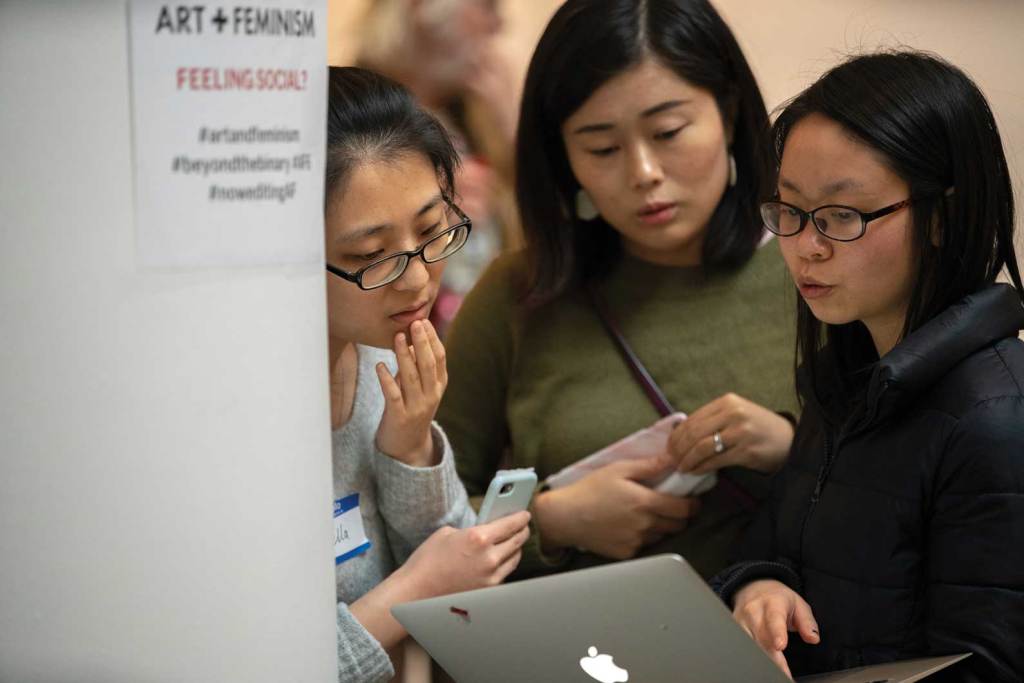
By adding new, high quality images of historical women figures, we can take steps to ensure that women receive fair, equal representation on Wikipedia. Initiatives such as our grant to the Smithsonian, as well as our support of women-focused edit-a-thons and Wikimedia volunteer groups like Women in Red are examples of our commitment to increase the visibility and participation of women on Wikipedia around the world.
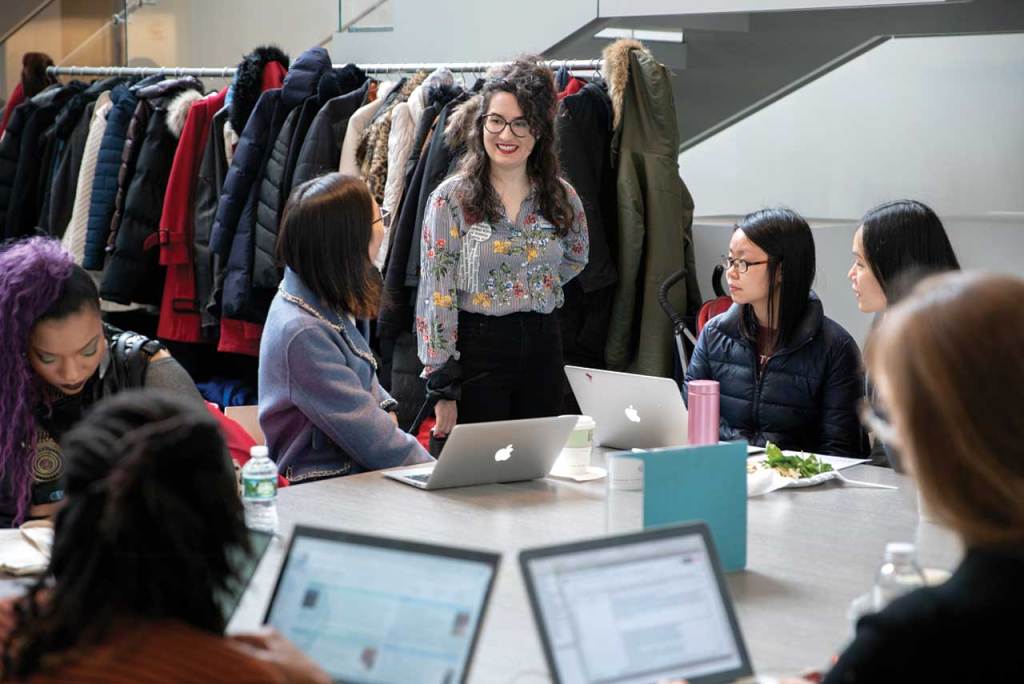
Wikimedia’s volunteers are dedicated to uncovering notable women within the archives who have been lost to history.
AI For Good
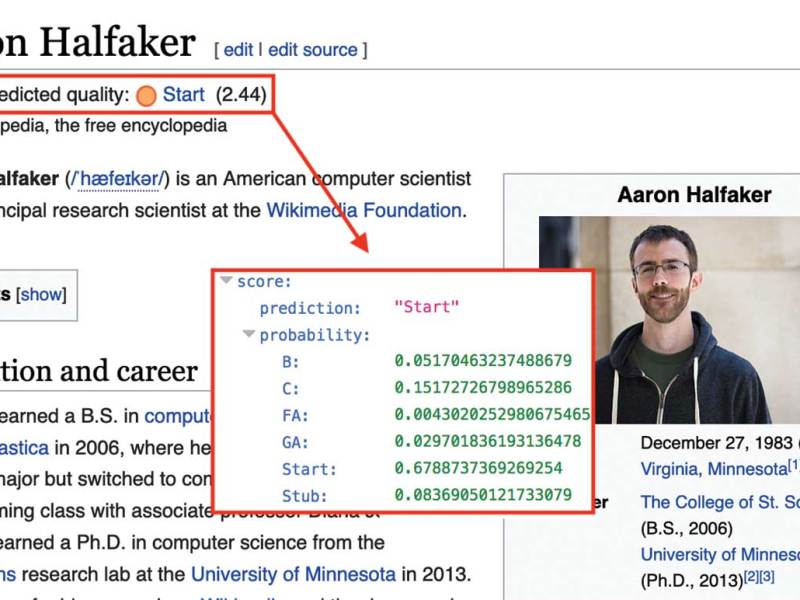
We’re making positive changes with ethical AI
As artificial intelligence becomes more ubiquitous—in airports to recognize passengers’ faces, in cars to help drive us on crowded streets, and on websites to track what articles and ads we read—more people than ever are worried about AI’s integration into daily life. In 2019, the New York Times summarized these fears with the headline: “Is Ethical A.I. Even Possible?” We say ethical AI is possible—because it’s already happening on the Wikimedia projects.
In the past year, volunteers worked closely with our AI service, ORES, to enhance how the service is improving Wikipedias in seven languages: Basque, Czech, Hungarian, Finnish, Serbian, Dutch, and Hebrew.
We’re modeling a different way to use AI. Many corporations will safeguard their algorithms to keep them proprietary and protect intellectual property. Commercial interests also drive their decisions. Wikimedia is creating AI-related software and tools that are open source, transparent in operation, and in dialogue with a community that tells us what works and what doesn’t.
In April 2019, we released a white paper, Ethical & Human-centered AI at Wikimedia, that presents risk scenarios moving forward, and improvements we can make to the process we follow in developing AI-powered products—and to the products’ designs.
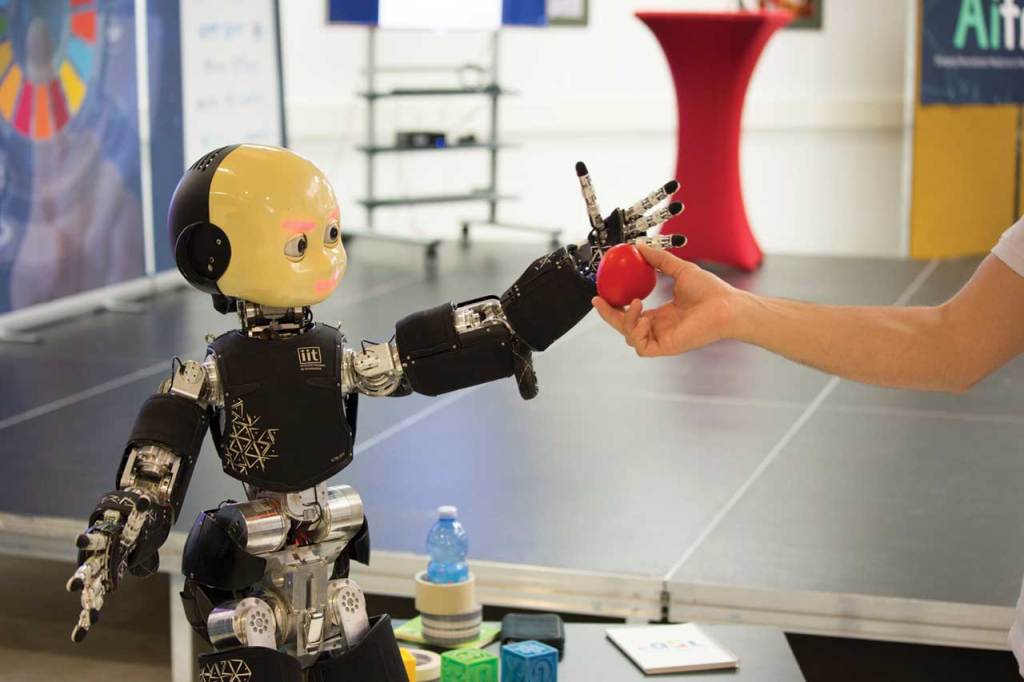
Employing ethical AI makes an impact both “behind the scenes” and for everyone to see. It helps Wikimedia staff make tools and software that are rooted in our values. It helps volunteers make edits that improve Wikipedia articles and improve our AI’s functionality. And ethical AI helps us stay focused on what matters: Expanding the Wikimedia projects with more knowledge and with firm principles of fairness.
Emna Mizouni

Meet Emna Mizouni, the 2019 Wikimedian of the year
She took a photo and shared it with the world. That’s how Emna Mizouni began contributing to Wikimedia in 2012—with images of buildings, signs, and food from her native Tunisia. Emna uploaded the photos to Wikimedia Commons, the site for media that is freely usable—and then got more involved with the Wikimedia projects every year, including co-organizing two major Wikimedia events in North Africa. In August 2019, Emna was named Wikimedian of the Year for her leadership within the Arabic community.
Every month, more than 250,000 new people become registered users on Wikipedia, giving them the ability to edit Wikipedia articles. Since Wikipedia began in 2001, editors have made 2.5 billion edits on Wikipedia.
Since Wikipedia began in 2001, editors have made 2.5 billion edits.
The volunteer effort behind the Wikimedia projects is more than edits. Organizing meet-ups is paramount. So is encouraging volunteers with a thanks, merci, شكراً or other kind word. And so is seeing the big picture—which Emna does as Vice-Chair of the Wikimedia movement’s Affiliations Committee, which advises the Wikimedia Foundation Board of Trustees on the approval of new movement affiliates. Emna also does this as a longtime leader with Wikimedia Tunisie, a user group that advocates for the Wikimedia Foundation’s projects in Tunisia.
Wikipedia, Wikimedia Commons, and our other projects, are always growing—with more articles, photos, and knowledge, put there by contributors like Emna. “I believe in the concept of the invisible leadership,” she says. “Every one of us in this world has the potential to help boost the work of the powerful Wikimedia community.”
A single photo can inspire millions of viewers. A single article can be read by millions of others. And a single event where volunteers meet to brainstorm can reverberate around the world. That’s Emna Mizouni’s impact. And that’s the impact of thousands of others who are making a difference on the Wikimedia projects.
Expanding human rights content on Wikipedia

Wikimedia and the United Nations partner to expand Wikipedia’s knowledge
At a time of growing polarization, misinformation, and limits placed on freedom of expression, understanding our human rights and history is a critical part of our daily lives. That understanding dictates everything from how we gather in our communities and speak about the issues we care about, to how we pursue freedom and flourish. But much of the knowledge about these rights is hidden within institutional systems or simply forgotten.
To address this challenge, the Wikimedia Foundation recently partnered with UN Human Rights to create the #WikiforHumanRights campaign. The campaign seeks to make knowledge of human rights more accessible to all by encouraging volunteers to improve and add articles about human rights on Wikipedia and our sister sites.
Knowledge is power. Information is liberating.
Kofi Annan, Former Secretary General, UN
The campaign builds on the important work of Wikimedia Argentina, an affiliate chapter, and their WikiDerechosHumanos project. Working with partners at the University of Buenos Aires, the project has been expanding Wikimedia’s human rights-related content for several years through a series of edit-a-thons and events across Latin America.
In 2019, the campaign created or improved more than 700 Wikipedia articles on Wikipedia—including historical events and human rights issues such as LGBT protest movements and the Dirty War in Argentina.
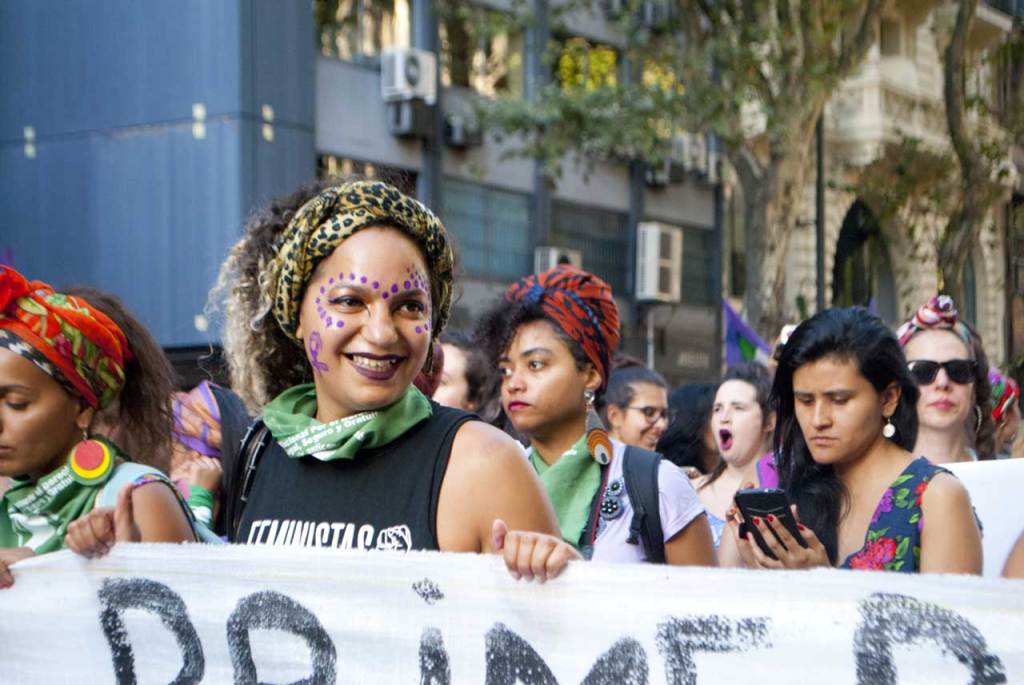
Through this partnership with the United Nations, Wikimedia is giving people around the world the freely accessible tools they need to learn about their past, their basic human rights, and how to uphold them.
Meeting people where they are
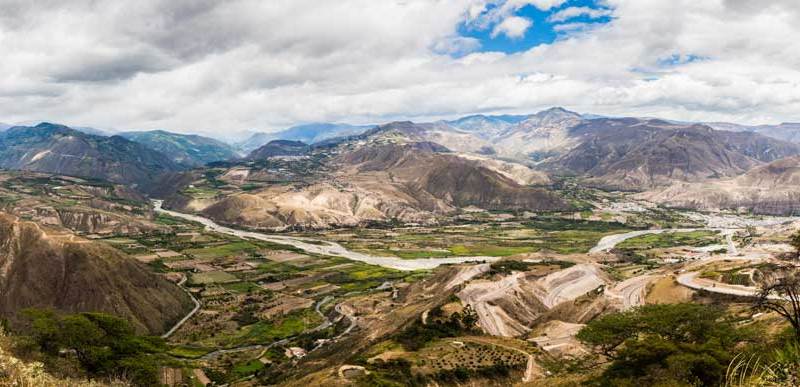
Recycling old TVs to bring Wikipedia offline in the Andes Mountains
The Wikimedia Foundation is committed to eliminating knowledge access barriers. For much of the world, this is a very real and daily problem. The 2019 International Telecommunication Union report for digital development estimates that 4 out of 5 people living in less developed countries are not yet online.
Here’s a typical example for you: In Imbabura Province, in the mountains of northern Ecuador, 90% of the population is either indigenous or mestizo (meaning a mix of indigenous and European descent). The poverty level is high. Internet access is patchy. And yet they are using Wikipedia. How?
Enter Kiwix. The Wikimedia Foundation began a partnership with Kiwix to make online content accessible for people without online access back in 2018. Using this free open-source software, an offline, editable version of Wikipedia can be stored on a modified TV.
At Yachay Tech University— yachay means “knowledge” in Quechua—two theoretical physics students downloaded Kiwix onto a free lightweight hardware called Raspberry Pi and hooked it up to an old TV.
It may not look as sleek as your laptop or smartphone, but it works. Using these converted TVs, people in Imbabura province who may not have a reliable internet connection can read and edit Wikipedia offline, uploading any changes to articles they make once they’re back online.
Since then, about a thousand people in the Ecuadorian Andes and Amazon rainforest have been able to access Wikipedia. Similar collaborations between Kiwix and the Wikimedia Foundation in Papua New Guinea, the Namib Desert, and Vanuatu have brought new users online in some of the most remote places on our planet. Going from zero to 1,000 users in a year represents incredible growth, and it’s an exciting sign that people everywhere are united by the same curiosity and desire to learn.
Wikimedia Is Going Green, Everywhere We Can

Minimizing server usage and other daily practices helps reduce our carbon footprint
Wikimedia has an obligation to help sustain the Earth’s natural resources. And we believe sustainability should be a daily practice—not something that happens now and again. The Foundation has been implementing green practices for many years, but we took further steps in the 2018–2019 fiscal year—and we’re committed to doing even more as we go forward.
We run the Wikimedia projects with about one-thousandth the number of servers used by websites with a comparable reach. A single data center can use more power than a small city, so operating with fewer servers means we have a much smaller carbon footprint.
Wikimania, our movement’s biggest annual conference, is carbon neutral.
We recently released a sustainability assessment that chronicles our work’s total carbon footprint and commits us to reducing our carbon emissions. More than two years in the making, the plan commits us to becoming more environmentally sustainable and more conscious of our environmental impact. Just one example: Ensuring our servers run on renewable energy.
Of Wikimedia’s about 400 staff and contractors, 60 percent work remotely around the globe—and have half the carbon impact of those at our San Francisco headquarters. But even our S.F. footprint is very low relative to comparable organizations. We’re located at Post Montgomery Center, which is one of the city’s greenest large office buildings— and has the best certification rating possible from the Leadership in Energy and Environmental Design (LEED) rating system. When the Wikimedia movement’s biggest annual gathering, Wikimania, took place August 2019 in Stockholm, the conference was entirely carbon neutral. We did it through carbon offsets and working with Terrapass, a social enterprise organization.
Just as we work with others to improve Wikipedia for the public good, we’re working with others to improve our environmental impact— not just in San Francisco but around the world.
Help us unlock the world’s knowledge.
As a nonprofit, Wikipedia and our related free knowledge projects are powered primarily through donations.
Donate now
Contact us
Follow
Photo credits
Could algorithmically-generated section recommendations inadvertently increase gender bias in biographies of women? (risk scenario A: Reinforcing existing bias.
Unknown
2019 Art+Feminism Wikipedia Edit-a-thon at The Museum of Modern Art, New York
Manuel Molina Martagon (WMF)
2019 Art+Feminism Wikipedia Edit-a-thon at The Museum of Modern Art, New York
Manuel Molina Martagon (WMF)
AI for Good Global Summit 2018 15-17 May 2018
Geneva ©ITU/D.Procofieff ITU (International Telecommunication Union
Emna with Wikipedia editors meeting together at the Editors Conference.
Lëa-Kim Châteauneuf (WMF)